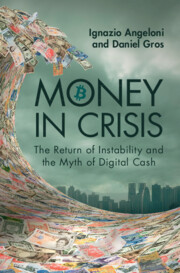Refine search
Actions for selected content:
322 results
9 - The Crisis and Tragedy of Hebrew Literary Criticism
- from Part II - Territorial Dimensions
-
-
- Book:
- A History of Modern Hebrew Literature
- Published online:
- 19 December 2025
- Print publication:
- 22 January 2026, pp 175-188
-
- Chapter
- Export citation
1 - Opportunities and Challenges in China’s Economic Development
-
- Book:
- Demystifying the Chinese Economy
- Published online:
- 12 December 2025
- Print publication:
- 08 January 2026, pp 1-21
-
- Chapter
- Export citation
5 - Rural Return
-
- Book:
- Homesick Nation
- Published online:
- 20 November 2025
- Print publication:
- 18 December 2025, pp 125-155
-
- Chapter
- Export citation
6 - Ecological Imaginaries of the State of Nature
- from Part II - Making Sense through the State of Nature
-
- Book:
- The State of Nature and the Shaping of Modernity
- Published online:
- 19 November 2025
- Print publication:
- 18 December 2025, pp 264-307
-
- Chapter
- Export citation
How Populists Governed the COVID-19 Pandemic: Populist Governance and Social Policies in Brazil, Hungary, Mexico, Poland, Russia and Turkey
-
- Journal:
- Government and Opposition / Volume 60 / Issue 4 / October 2025
- Published online by Cambridge University Press:
- 14 November 2025, pp. 1313-1335
-
- Article
-
- You have access
- Open access
- HTML
- Export citation
People and time in nature: Positioning archaeology in an ecoclimate crisis
-
- Journal:
- Archaeological Dialogues , First View
- Published online by Cambridge University Press:
- 10 November 2025, pp. 1-18
-
- Article
-
- You have access
- Open access
- HTML
- Export citation
3 - Structuring plot
-
- Book:
- The Prompts You Need to Help You Write the Book You Want to Write
- Published online:
- 25 October 2025
- Print publication:
- 06 November 2025, pp 29-46
-
- Chapter
- Export citation
Sail Through the Rough Seas: Trajectories of Employee Work Productivity in Times of Crisis and Boundary Conditions
-
- Journal:
- Management and Organization Review / Volume 21 / Issue 4 / August 2025
- Published online by Cambridge University Press:
- 03 November 2025, pp. 771-793
-
- Article
- Export citation
From the bottom up? Frontline crisis management and informal policy change in international organisations
-
- Journal:
- Review of International Studies , First View
- Published online by Cambridge University Press:
- 03 November 2025, pp. 1-21
-
- Article
-
- You have access
- Open access
- HTML
- Export citation
6 - Cessie van Goede
- from Part III - Insolvents
-
- Book:
- Court, Credit, and Capital
- Published online:
- 24 November 2025
- Print publication:
- 16 October 2025, pp 216-250
-
- Chapter
- Export citation
Conclusion and Epilogue
-
- Book:
- An Economic History of Europe
- Published online:
- 02 October 2025
- Print publication:
- 02 October 2025, pp 275-287
-
- Chapter
- Export citation
10 - Social Transformations during Infancy
- from Part III - Lifespan Development in Diverse Sociocultural Contexts
-
-
- Book:
- The Cambridge Handbook of Psychological Anthropology
- Published online:
- 22 October 2025
- Print publication:
- 25 September 2025, pp 253-274
-
- Chapter
- Export citation
8 - Holding against the Storming
-
- Book:
- Ability and Difference in Early Modern China
- Published online:
- 10 September 2025
- Print publication:
- 11 September 2025, pp 186-211
-
- Chapter
- Export citation
7 - Commerzbank
-
- Book:
- Extroverted Financialisation
- Published online:
- 07 August 2025
- Print publication:
- 21 August 2025, pp 127-142
-
- Chapter
- Export citation
Specialist mental health crisis centres in England: a step forward or a stumble in the dark?
-
- Journal:
- BJPsych Open / Volume 11 / Issue 5 / September 2025
- Published online by Cambridge University Press:
- 19 August 2025, e187
-
- Article
-
- You have access
- Open access
- HTML
- Export citation
Macroeconomic populism in Chile: Allende and the recession of 1973
-
- Journal:
- Revista de Historia Economica - Journal of Iberian and Latin American Economic History / Volume 43 / Issue 2 / September 2025
- Published online by Cambridge University Press:
- 06 August 2025, pp. 309-332
- Print publication:
- September 2025
-
- Article
- Export citation
2 - Orders in Transition and Implications for Political Legitimacy
- from Part I - Setting the Stage
-
- Book:
- The Law and Politics of International Legitimacy
- Published online:
- 14 July 2025
- Print publication:
- 24 July 2025, pp 24-38
-
- Chapter
- Export citation
17 - Change of International Order and Legitimacy
- from Part V - International Legitimacy and Change
-
- Book:
- The Law and Politics of International Legitimacy
- Published online:
- 14 July 2025
- Print publication:
- 24 July 2025, pp 318-349
-
- Chapter
- Export citation

Money In Crisis
- The Return of Instability and the Myth of Digital Cash
-
- Published online:
- 15 July 2025
- Print publication:
- 12 June 2025
Pandemics meet democracy: the footprint of COVID-19 on democratic attitudes
-
- Journal:
- Political Science Research and Methods , First View
- Published online by Cambridge University Press:
- 15 July 2025, pp. 1-10
-
- Article
-
- You have access
- Open access
- HTML
- Export citation
